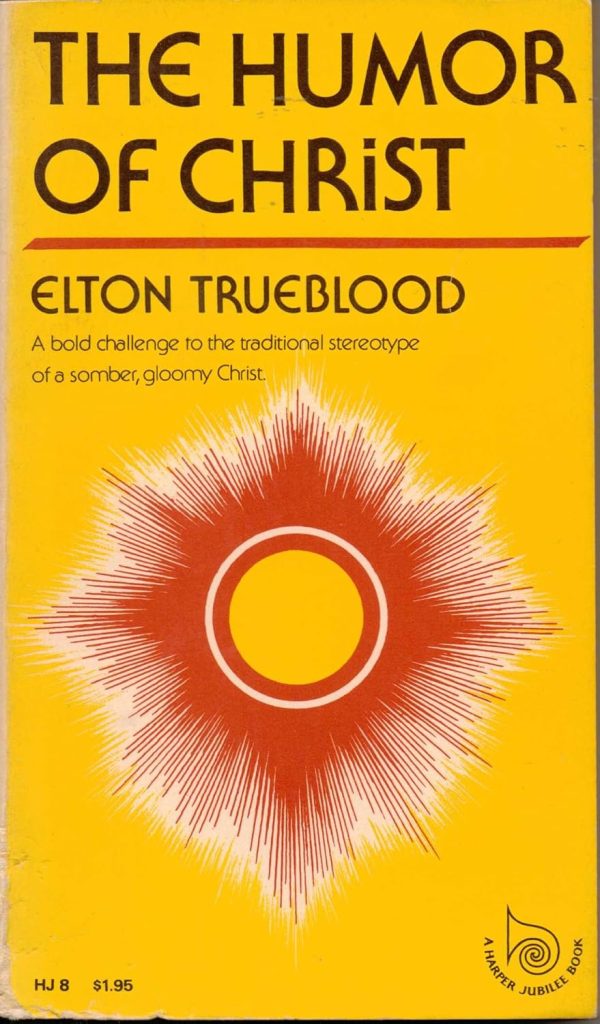by Elton Trueblood
–
“The well-known humor of the Christian is not a way of denying the tears, but a way of affirming something that is deeper than tears,” writes Quaker theologian/philosopher Elton Trueblood in this ever-relevant book written in 1964.
He asserts that Jesus laughed a great deal and, given what Jesus had to say about himself, there is laughter and joy in the heart of God.
Trueblood lays down a challenge to many readers’ stereotype of Jesus.
Consider the various images of Jesus presented in painting, sculpture and iconography. How many show a laughing Jesus — or, for that matter, an angry Jesus?
What characteristics come to mind when we think of Jesus?
Warning against misguided piety, Trueblood offers humor as a significantyet often neglected feature of Jesus’ teaching, pointing first to its appearances in the Synoptic Gospels (Matthew, Mark and Luke).
True blood notes we miss aspects of humor locked in linguistics (like puns) and unfamiliar cultures. But he goes on to show ready evidence of Jesus’ humor in “the child spirit,” paradox and the preposterous.
Perhaps most helpful are the chapters on “Christ’s Use of Irony” and “The Strategy of Laughter.” The latter focuses on Herod, priests and the disciples, but the discussion on the Pharisees particularly stands out.
Trueblood then discusses some very familiar humorous parables and one significant dialogue.
He points followers of Jesus to share in his joy, not being blind to injustice and suffering, but being convinced that given divine sovereignty, they are not ultimate.
In some respects this book is a supplemental Gospel commentary for teachers or preachers It is very readable and would make for a six-to-eight week text for Bible study, Sunday School or reading groups.
Reading it reflectively would enhance daily devotional life. It is very readable.
“The most valuable use we can make of the wit and humor of Christ is to think of ourselves as Pharisees, as to some extent we are, and thus allow the comic purification to take place,” writes Trueblood. “We hate to be laughed at by one another, but we do not mind being laughed at by him.”
Review by Tom Prevost, retired minister and mission administrator in Chattanooga, Tenn.

